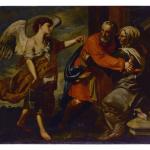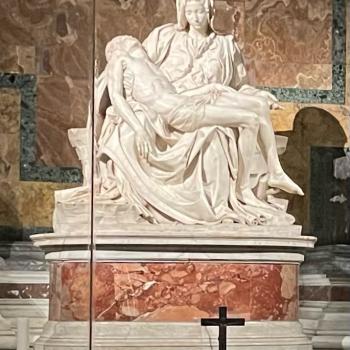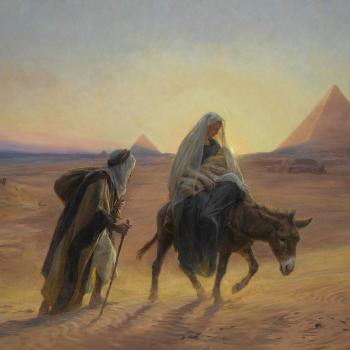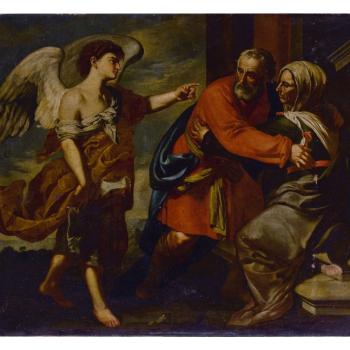Today is the first Sunday of Advent. Advent is about waiting. But it is far more and very different from a waiting game. The Cambridge Dictionary defines “waiting game” as a “situation in which you delay taking any action, so that you can watch how a situation develops and see what it is best for you to do.” Those of us who are experiencing crises don’t have the luxury to engage in such waiting games in which no action is taken. Advent is about waiting expectantly and obediently for Jesus’ coming. It’s about taking action here and now in view of that day.
We reenact the primal story of waiting as we recount Jesus the Messiah’s first coming to earth. He was born of the Virgin Mary who was wed to Joseph. We learn from Jesus’ genealogy in Matthew’s Gospel that the people of God waited forty-two generations for the Messiah’s appearance: “Thus there were fourteen generations in all from Abraham to David, fourteen from David to the exile to Babylon, and fourteen from the exile to the Messiah.” (Matthew 1:17; NIV). Even as we reenact this story of Advent, we look forward, waiting with anticipation and taking obedient action in view of Jesus coming again.
I wonder if the patriarch Abraham envisioned it would take as long as it did for the Messiah to appear the first time. Genesis 12 conveys the first promise God made to Abraham, which includes reference to the Messianic promise:
“The Lord had said to Abram,
‘Go from your country, your people and your father’s household to the land I will show you.
I will make you into a great nation, and I will bless you;
I will make your name great, and you will be a blessing.
I will bless those who bless you, and whoever curses you I will curse;
and all peoples on earth will be blessed through you.’” (Genesis 12:1-3; NIV)
In fact, as Hebrews tells us, Abraham never received what he waited for (Hebrews 11:8-13). He wandered throughout his life, dwelling as a stranger in the Promised Land in tents, rather than settle permanently somewhere there. While he did receive Isaac his son in his old age, he did not experience the promise fulfilled of being a great nation during his lifetime. Nor did he witness the fulfillment of the promise that all nations would be blessed through him through the Messianic promise. Even so, he obeyed God. As Genesis 12:4 recounts, “So Abram went, as the Lord had told him; and Lot went with him. Abram was seventy-five years old when he set out from Harran. He took his wife Sarai, his nephew Lot, all the possessions they had accumulated and the people they had acquired in Harran, and they set out for the land of Canaan, and they arrived there” (Genesis 12:4-5; NIV).
God called Abraham to go and he went. When God calls us to go, we go, even if we do not know where we are going: “By faith Abraham, when called to go to a place he would later receive as his inheritance, obeyed and went, even though he did not know where he was going.” (Hebrews 11:8; NIV)
My wife and I know a lot about where we are going in our care for our adult son Christopher. He is our Isaac. We waited patiently and fervently for years for our first child. Now we wait again with realistic and long-suffering hope for his emergence or rebirth from TBI. And yet, there is a lot we do not know given the mystery of the brain and the medical and legal complexities surrounding his care.
Every day we wait, not as in a waiting game involving no action. We move forward, praying, seeking God, asking God to open the right doors in advocacy and provision for him, his wife, and daughter ever since his catastrophic brain injury in January 2021. We inquire of others, fill out forms, raise awareness, and ceaselessly advocate. Doors open. Doors close. But we keep pressing on. There’s no time for waiting games. But there is no better time to wait on God than in the present moment every single day.
It can get maddening thinking about what if Christopher never improves beyond his current state of minimal consciousness, about how can we keep going day after day, month after month, year after year. And yet, we keep going somehow, someway. A friend of ours lives with chronic, excruciating physical and psychological pain. Nothing works to dull it and it deeply dampens her ability to cope and find hope amid the struggle. And yet, she keeps going somehow, someway. We go forward together expectantly and obediently, waiting for Jesus’ coming. Little acts of obedience in loving God, loving one’s child and neighbor, loving oneself are part of this journey.
It is especially hard to wait in a society in which so much of life is about instant gratification, Amazon Prime, high-speed internet, and fast food. We can’t even wait until Thanksgiving is over before we bring out the Christmas decorations. Jesus is already lying in the manger before December 25th when the church calendar recounts his birth. I share in the wonderment of Christmas season magic and cheer. I love little babies, too, especially Jesus! But I wonder if it makes it harder to wait in other areas of life, including Jesus’ second coming, based on the urge to experience everything now. Delayed gratification might be far more invigorating in the long run.
We take comfort from the fact that Abraham waited so very long, beyond his lifetime. Even now, the promise is yet to be fulfilled. We take comfort from others who keep waiting, waiting for Jesus to come again. Advent helps us step back, reprogram our expectations for the long haul, and move forward step by step, waiting expectantly and obediently. Jesus will return. When he does take us home, we want to be found ready. We want to be the kind of people who never stopped waiting expectantly and obediently while life as we know it lasts. Advent is far more than a waiting game.















